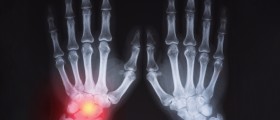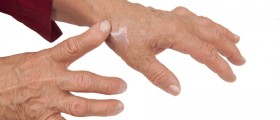
Medications for Arthritis Pain
Arthritis is the medical condition caused by inflammation of joints in your body. Usually, it also affects the surrounding tissue, such as muscles, ligaments, and bones. There are different types of the disorder, and the most common are rheumatoid arthritis and osteoarthritis. Lupus and psoriasis less commonly affect the joints.
Joint consists of different parts, including cartilage, synovium(the membrane which produces synovial fluid to lubricate the joint) and joint capsule. Damage on any of the parts of the joint can cause pain.
Rheumatoid arthritis is an autoimmune disorder. The immune system attacks the healthy cells of the joint and causes synovium inflammation. This inflammation leads to redness, swelling, and pain in the joints.
Osteoarthritis is caused by aging. With years, the cartilage of the joints gets worn off. The bone is directly connected to the bone, and the friction causes pain. Infections or joint injuries may speed up the process and leads to osteoarthritis in young people.
Risk Factors
Risk factors for developing arthritis are usually age, genetic predispositions, preexisting joint problems, weight, and sex. Elderly people are more likely to develop this condition, especially older women, who usually suffer from rheumatoid arthritis. Weight also plays an important role in arthritis. Obesity causes much more pressure on the joints and leads to joint stress and damage. Athletes or people that had previous joint injury are more prone to arthritis than the other people.
Treatment for Arthritis
Patients suffering from this disorder usually take analgesics to reduce the pain. The most common is tramadol (Tylenol), acetaminophen (Ultram) and narcotics, such as hydrocodone (Vicodin) or oxycodone(Percocet). There are also counter-irritant medications, including capsaicin from the chilies and menthol. Non-steroidal anti-inflammatory drugs (NSAIDs) (ibuprofen, naproxen, Aspirin, etc) affect inflammation and ease the pain. These medications are available as tablets, gels, and creams. The downsides are side effects: digestive problems and the possibility of a stroke and heart attack. Corticosteroids, such as prednisolone and cortisone, taken orally or injected to the joint, can also decrease the arthritis pain. Disease-modifying antirheumatic drugs (DMARDs) are methotrexate (Trexall) and hydroxychloroquine (Plaquenil). These medications affect the immune system and disable it to attack healthy joint tissue. Biologics are TNF blockers: etanercept (Enbrel)and infliximab (Remicade). These drugs also modify the immune system.
Alternative Approaches
These alternative treatments usually include the use of acupuncture, transcutaneous electrical nerve stimulation(also known as TENS) or supplements containing glucosamine and some other substances.

















Your thoughts on this
Loading...